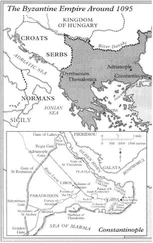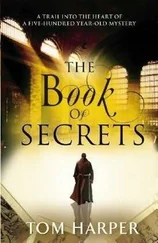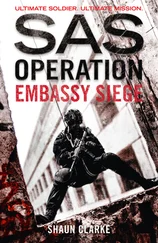Tom Harper - Siege of Heaven
Здесь есть возможность читать онлайн «Tom Harper - Siege of Heaven» весь текст электронной книги совершенно бесплатно (целиком полную версию без сокращений). В некоторых случаях можно слушать аудио, скачать через торрент в формате fb2 и присутствует краткое содержание. Жанр: Исторический детектив, на английском языке. Описание произведения, (предисловие) а так же отзывы посетителей доступны на портале библиотеки ЛибКат.
- Название:Siege of Heaven
- Автор:
- Жанр:
- Год:неизвестен
- ISBN:нет данных
- Рейтинг книги:5 / 5. Голосов: 1
-
Избранное:Добавить в избранное
- Отзывы:
-
Ваша оценка:
- 100
- 1
- 2
- 3
- 4
- 5
Siege of Heaven: краткое содержание, описание и аннотация
Предлагаем к чтению аннотацию, описание, краткое содержание или предисловие (зависит от того, что написал сам автор книги «Siege of Heaven»). Если вы не нашли необходимую информацию о книге — напишите в комментариях, мы постараемся отыскать её.
Siege of Heaven — читать онлайн бесплатно полную книгу (весь текст) целиком
Ниже представлен текст книги, разбитый по страницам. Система сохранения места последней прочитанной страницы, позволяет с удобством читать онлайн бесплатно книгу «Siege of Heaven», без необходимости каждый раз заново искать на чём Вы остановились. Поставьте закладку, и сможете в любой момент перейти на страницу, на которой закончили чтение.
Интервал:
Закладка:
After about an hour, Pakrad came to visit. The monk’s habit had gone, replaced by a grimy grey tunic and a leather hauberk. Three knives hung from his belt, another jutted from the top of his boot. Of his monastic disguise, only the tonsure remained — an incongruous crown to his vicious appearance.
‘We need a doctor,’ I said. ‘And water.’
Pakrad looked down on me with a sneer. ‘You will get what I give you. After you have given me what I want. He pointed to my hands, tied in front of me like a supplicant at prayer. ‘Give me your ring.’
I looked down at my left hand, to the finger where I wore the imperial signet ring. Was that what this battle was about?
‘Give me the ring,’ Pakrad repeated. He reached out his left hand, while with his right he pulled one of the knives from his belt. The blade was dull in the dim light as he slapped it impatiently against the flat of his hand.
‘Give me it.’
Instinctively, I tried to make a fist, but Pakrad was faster and had pressed his blade into my palm so that I could not close my fingers without cutting myself. He lifted the knife, so that I had no choice but to raise my hand. With a grunt of satisfaction, he twisted the ring off my finger and jammed it on his own.
‘Is that all you wanted?’ I asked in astonishment. A little ring — a ring I would gladly have thrown into the dust at the roadside to be free of my obligation to the emperor. Why had it brought me here?
Pakrad sheathed his knife and stared at the ring on his hand, admiring his trophy. I saw that he winced whenever he moved his shoulder, and I took a small measure of satisfaction from that.
‘We need a doctor,’ I said again.
He looked up. ‘Do you know what dogs do when one of their pack goes lame? They tear him apart and eat him. There is no doctor here.’ He paused, savouring my misery. ‘But I will do what I can for your friend. He will be worth less injured, and nothing at all if he dies.’
‘Worth less to whom?’
But Pakrad only laughed, and left us in our prison.
None of us spoke. A wave of desolation broke over me; I no longer even had the hope to pray. I had abandoned Anna and forsaken Sigurd, the two people I loved best in the world after my children — and all so that a treacherous bandit could steal a worthless ring. I wished he had stolen the ring from my campfire, or even cut it from my finger at Antioch, rather than luring me to die in this remote monastery. Not to die , a voice whispered — if he’d wanted me dead he could have had me impaled on the end of a spear hours ago. But I feared there was little kindness in his mercy.
If I kept thinking those thoughts I would have dashed out my brains on the wall behind me by morning. With a great effort of will, I forced myself to concentrate on my surroundings. It must be night outside: I could hear the tramp of guards on the walls, muttered watchwords and spears clattering against stone; water dripping on the floor and a horse whinnying near by. Around me, the Varangians muttered prayers, though whether for themselves, their captain or their fallen companions I could not tell. I wondered which god they prayed to.
My shoulders were beginning to go numb. I wriggled in my bonds to try and work some feeling into my limbs, and as I did so I noticed something in the corner of my eye. To my right, a small spot glowed silver in the dark wall. I twisted around, trying not to make a noise. There was a hole in the wall, no larger than a walnut, but big enough that if I put my eye to it I could see through into the room on the far side.
It was the basilica, the church where we had fought and lost our battle, now washed in moonlight. I could see the stone I had pulled away on the altar dais still lying where I had left it, and the pile of armour taken from the Varangians. Most of the blood had been cleaned away by the rain, though dark splashes still stained some of the walls. Otherwise, the room was empty.
I rolled away and settled myself in the least uncomfortable position I could manage. Then, God knows how, I slept.
When I opened my eyes, bright light poured through the holes in the thatch, and I could see my surroundings clearly at last. Immediately, I looked across the room to Sigurd. He lay still under his blanket, eyes closed, the only sign of life the shallow rising and falling of his chest beneath it. Thankfully, he did not seem to be bleeding.
Later in the morning, our guards brought breakfast: a cold corn-meal gruel that they slopped into our mouths. At least it seemed they meant to keep us alive — though to what purpose, I did not dare guess. After that, we were left alone again.
The storm the day before might have cleared the air, but the respite did not last long. The thatched roof stifled us like a blanket, heating the dank air until the stench and the steam became almost unbearable. For a time, the Varangians talked hopefully of escape and tugged on the iron rings that locked them in place, but even their strength could not dislodge them. They soon lapsed into silence. We lolled against the walls, occasionally shrugging our shoulders to try and keep some life in them, and sweltered.
With nothing else to do, I spent much of the time peering through the hole in the wall — though always on edge lest one of the guards catch me. There was plenty to see. Pakrad seemed to use the derelict church as his head-quarters. He sat behind a broad table he had erected in the shade of the domed roof, while his men lounged in the sun and a succession of visitors came and went. They spoke Armenian, and though I did not understand a word they said it was easy enough to work out what was happening. Men and women, mostly peasants, would enter the room with eyes lowered and an offering held before them: baskets of eggs or olives, two chickens in a wicker cage, jars of wine and oil, even a full-grown sheep. Every one of them trembled as they came in — particularly the women. They would deposit their gifts in front of Pakrad, bow low, and mumble some plea or homage, which Pakrad would then consider, or debate with his men, or dismiss with a scornful wave of his hand. Some of the petitioners went away smiling with relief, others weeping or with their heads buried in their hands. Some were less lucky. In the middle of the afternoon I watched as a peasant girl harangued and pleaded with Pakrad, refusing to accept his obvious rejections, until eventually his men dragged her away. Her screams echoed through the monastery for a full hour afterwards.
I did not watch any more after that. I had seen enough to get the measure of Pakrad. He took homage and distributed justice like a lord, but in truth he was nothing more than a brigand, and the monastery his ramshackle castle. What had happened to the monks, I did not like to think. Nor could I tell why he should have troubled to lure us there, or what he intended with us.
Late in the day, when the light had softened to a peachtinged glow streaming in over my head, I heard a shout from the courtyard, the creak of a heavy gate and the clop of hooves. A greeting or a challenge was shouted, though I did not hear the answer.
I twisted around and put my eye to the hole in the wall. A fire had been built in the nave of the church; beyond it, I could see Pakrad pacing behind his table. He was almost unrecognisable from the cocksure brigand I had watched that afternoon. He seemed off-balance, nervous, constantly smoothing down the folds of his tunic.
There was a noise from the unseen door and his head snapped around. I heard footsteps, then saw a dark figure stride past the fire. He wore a riding cloak with the hood pulled up, though he must surely have regretted it with the heat of the fire so close and the heat of the day not yet faded.
Like all the supplicants I had seen that day, he brought a gift: a heavy bag tied with rope, which he deposited on the table. I heard the muffled chink of coins settling as he put it down. It must have been a rich offering, but there was nothing subservient in the man who brought it. He stood tall and superior, surveying the bandit from under the shadow of his hood. Though I could not see his face, there was no doubting his authority over Pakrad.
Читать дальшеИнтервал:
Закладка:
Похожие книги на «Siege of Heaven»
Представляем Вашему вниманию похожие книги на «Siege of Heaven» списком для выбора. Мы отобрали схожую по названию и смыслу литературу в надежде предоставить читателям больше вариантов отыскать новые, интересные, ещё непрочитанные произведения.
Обсуждение, отзывы о книге «Siege of Heaven» и просто собственные мнения читателей. Оставьте ваши комментарии, напишите, что Вы думаете о произведении, его смысле или главных героях. Укажите что конкретно понравилось, а что нет, и почему Вы так считаете.










